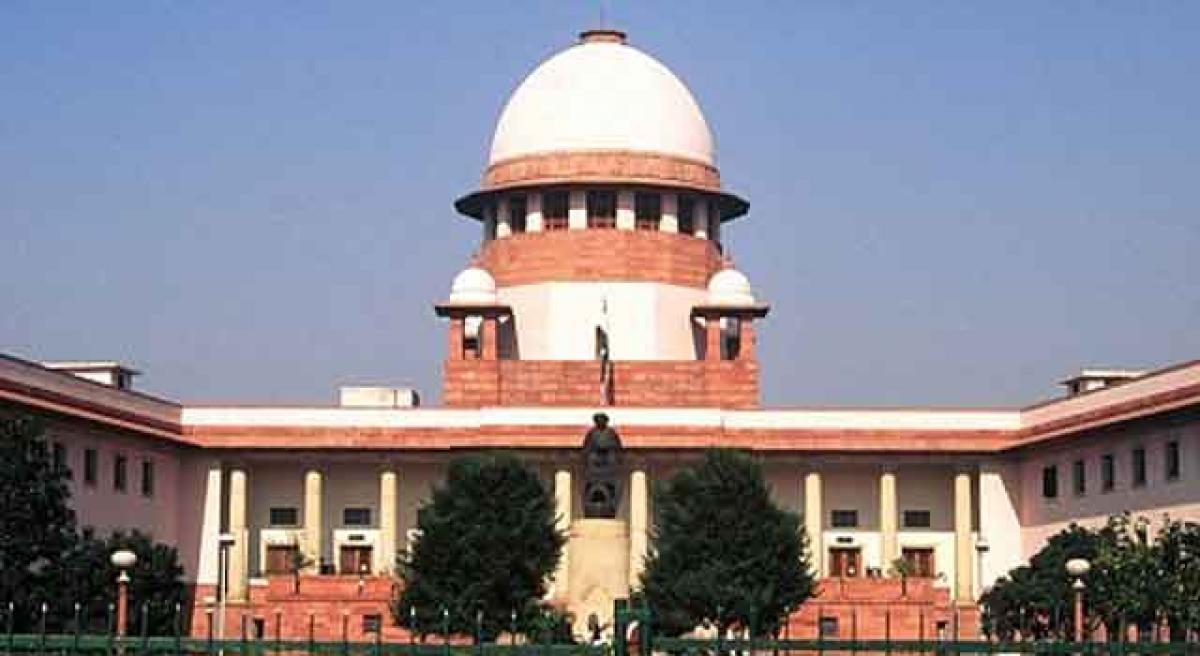Live
- Scholarships For Students
- What are the causes behind the increasing number of cancer cases
- Navigating Higher Education in US through scholarship
- Thrissur Pooram 2024: A Celebration of Tradition and Spirituality
- Akshaya Tritiya 2024: Date and Significance
- Kamada Ekadashi 2024: Date, Auspicious Timings And Significance
- Aamir Khan’s son Junaid wraps up filming for his second movie
- Vijay Sethupathi’s heartwarming gesture wins netizens’ hearts
- Excitement builds as Nabha Natesh and Priyadarshi paired up
- Gurinder Chadha all set to make a comeback to big screen
Just In

The Supreme Court of India has called for a public and constitutional debate over the validity of triple talaq. It’s a happy augury given the belief that the personal laws are beyond judicial review. When criminal law is uniform for all citizens, why not the personal law that too related to the life and liberty of innocent women?
The Supreme Court of India has called for a public and constitutional debate over the validity of triple talaq. It’s a happy augury given the belief that the personal laws are beyond judicial review. When criminal law is uniform for all citizens, why not the personal law that too related to the life and liberty of innocent women?
Fundamentalist defiance to civilised practices is an anathema to democracy. The 21st century cannot allow archaic social beliefs in the name of religion, too. Triple talaq in one sitting as irrevocable divorce is outlawed even in many Muslim countries including Pakistan, Bangladesh, Iraq, Egypt, Morocco, Sudan, Jordan, Syria, Yemen, United Arab Emirates (UAE) etc.
A secular State like India cannot justify such a patriarchal practice. Impetuous and foolhardy husband cannot be allowed to let go with such brazen irresponsibility in the guise of religion or tradition.
From Shah Bano in 1985 to Saira Banu in 2016, few protests could not succeed before the mountain of fundamentalist hegemony.
Muslim women are not only the victims of impervious men, but, their right to divorce is difficult besides social stigma of being accused for marital breakdown. Renowned women’s studies scholar, Zarina Bhatty, in her recent book, Purdah to Piccadilly, said that for a Muslim woman, it is very difficult to seek divorce without the husband’s consent while Muslim men who can divorce at will by saying ‘divorce you’ three times (triple talaq). Husbands have to approve khula (women seeking divorce) to take place, while talaq (husband giving divorce) can be easily obtained.
Such obnoxious gender inequality is uncalled for. An interpretation of the holy Quranic verses says that a man is allowed to divorce his wife but advised to maintain a gap of one menstrual cycle between each pronouncement.
At the end of third menstrual cycle, the irrevocable divorce takes place. This gives an opportunity to repent. The Holy Scriptures provide for Iddat or a waiting period to enable reconciliation. But, triple talaq disallows the possibility for rapprochement.
In Masroor Ahmad vs State, the Delhi High Court in 2008 ruled that triple talaq should be deemed as a single revocable talaq. The Gauhati High Court in Jiauddin Ahmed vs Anwara Begum, 1981, said that the talaq must be for a reasonable cause and must be preceded by attempts at reconciliation.
As a noted expert on Islamic jurisprudence, Tahir Mahmood said, if any part of customary law, including the personal laws of different religions, conflicts with constitutional provisions, the Supreme Court is bound to intervene when it is appealed to by any citizen who feels aggrieved on this count.
It is interesting to note that triple talaq originated to protect women. A study of Islamic history reveals that in the seventh century, the second Caliph Umar reportedly sanctioned triple talaq to help women who are the victims of bad marriages. The irrevocability of marriage was awarded to ensure that women get out of such marriages. Unfortunately, a benign practice turned hostile for women.
History of world religions reveals that patriarchy redefined even sacred texts to the advantage of men. Whether or not the religion sanctions it, the uncivilised treatment of women can never be tolerated in a constitutional democracy.

© 2024 Hyderabad Media House Limited/The Hans India. All rights reserved. Powered by hocalwire.com







